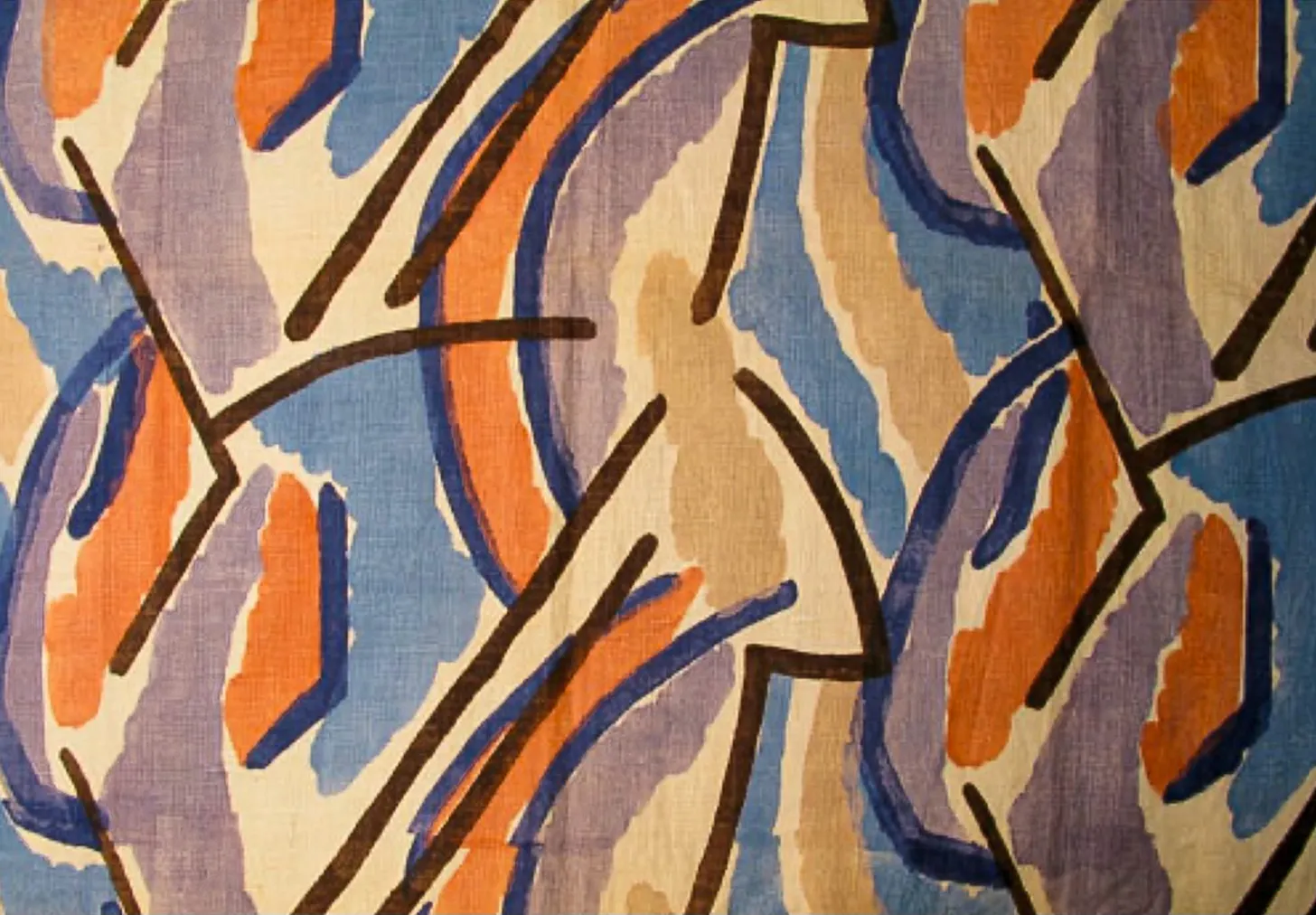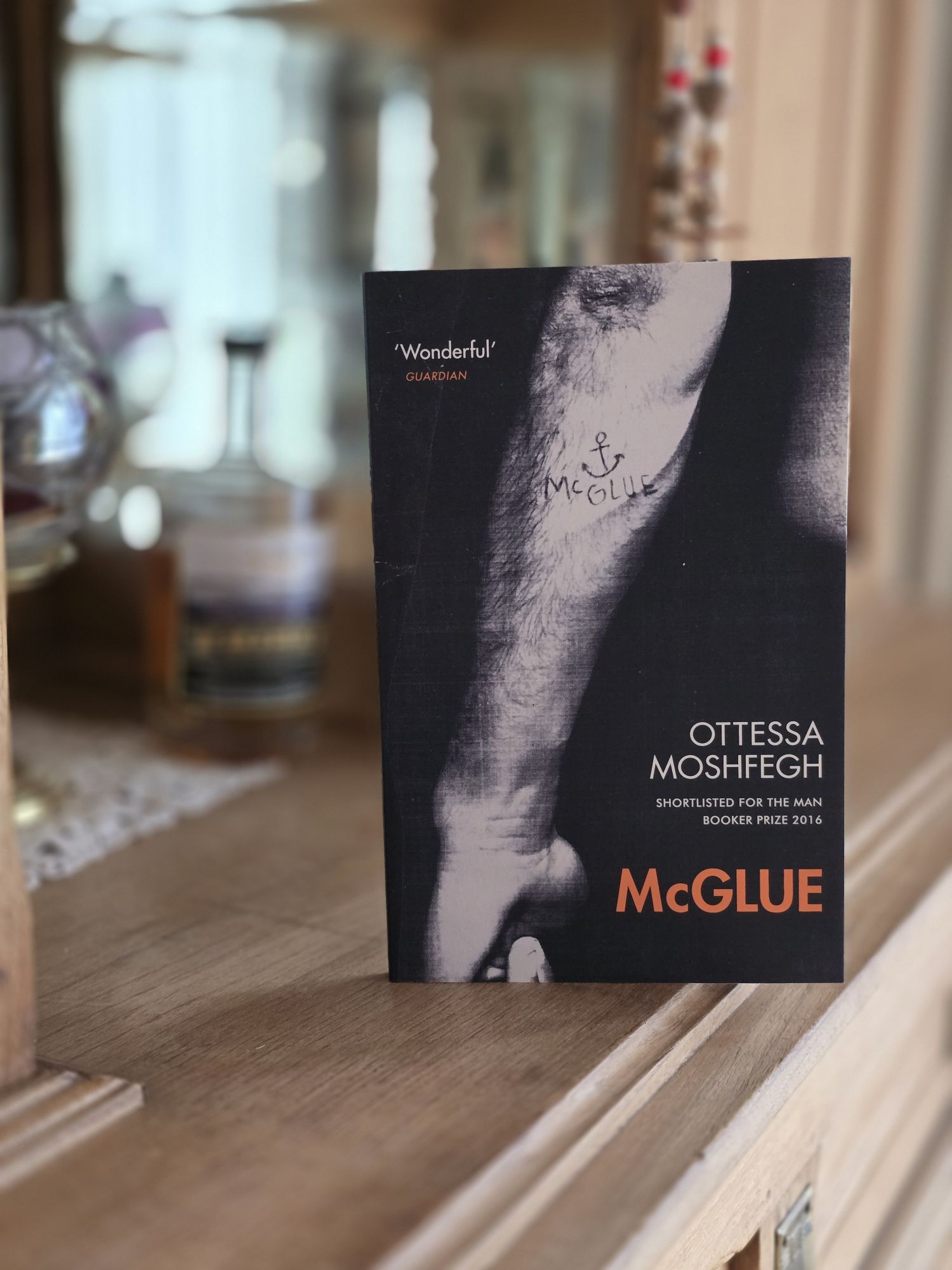I am on a long-term quest to read Ottessa Moshfegh’s entire oeuvre and this means there’s no way I can ignore her first work, published in 2014. McGlue is not a novel, really. It’s more like a longer novella. Her first novel, Eileen, published one year later, in 2015, went straight to being short-listed for the Booker and, to date, Moshfegh has 4 published books. I can’t speak for the last two but having read her first two novels and her first novella, it seems to me that the author is refining and pushing more and more the boundaries of her writing.
McGlue is a good introduction to the raw essence of Ottessa Moshfegh’s literary style, and her subsequent novels only get better. Her writing is sharp, visceral and unapologetically dark. The novella is a study of the broken memories of a sailor whose mind is drowning in alcohol. His dismembered recollections can’t tell him if he really committed a crime he stands accused of – the murder of who might or might not be a fellow sailor. Eileen picks up the theme of the character who you can’t really warm up to, but this time she’s a morbid prison guard who takes a less-than-healthy interest in a co-worker. The narrator of My Year of Rest and Relaxation, Moshfegh’s second novel, is a departure from both McGlue and Eileen. She renounces society and numbs herself with pills. But there’s one thing Moshfegh always does in her novels. She both repels and enthralls.
mcglue and his world
McGlue is a dark tale set somewhere in the waters of the 19th century. The story is told by the titular character himself, a hard-drinking sailor suffering from a head injury that leaves him in a perpetual haze. We meet McGlue as he imprisoned on a ship, accused of murdering his closest friend, Johnson. McGlue cannot remember what happened on the night of the supposed crime, and much of the narrative reaches the reader through the sailor’s fragmented recollections and drunken delusions.
They say I’ve done something wrong? Johnson must be angry and won’t come down to make it right. Not yet. And they’ve just let me down here to starve. Haven’t had a drop in days more so.
As McGlue wakes up and is asked to admit his crime, he is in Zanzibar. The ship is bound to take him to his hometown, Salem, Massachusetts. On the way, McGlue revisits fragments of his friendship with Johnson and moments in various international ports which they visited during their travels. As he sails back to Salem across the Indian Ocean and the South Pacific, we start to get a feeling for his transient and volatile lifestyle. McGlue doesn’t seem to assign any kind of meaning to his existence. He wanders from here to there, and the only point of stability in his jumbled recollection is the mysterious Johnson. In Calcutta the two of them watch a Hindu man push a blade down his throat, and in New York McGlue watches Johnson sell his horse. The memories of his friend are sharper than anything else.
I looked in Johnson’s eyes. He stood there facing me a few breaths. Nothing came out of his eyes like I was used to seeing in any man. I felt some fear.
is mcglue to be believed?
Reading McGlue feels like standing at the bottom of a well and looking up, squinting at what might be daylight or just very bright moonlight. Probably because the story is written in the present tense, the point of view feels claustrophobic and limited. But where there are limits, there are also boundaries which can be broken.
As McGlue struggles to piece together the truth of Johnson’s possible death, his inner turmoil and dependence on alcohol blur the lines between memory, dream and reality. His recollections of his relationship with Johnson are laced with contradictory emotions – love, resentment, dependence – that make his perspective emotionally truthful but factually suspect. McGlue is a classic case of an unreliable narrator, but, in my opinion, quite heavy-handed on Moshfegh’s side.
who is really telling mcglue’s story?
McGlue’s storyteller condition is so obvious, that it makes me wonder if perhaps the author wanted to split open the consciousness of her character and do some experimenting herself. McGlue’s unreliability is not only a reflection of his unstable psyche, but, at the end of the day, also a narrative device, an exploration of how the emotional truth can be stronger than the factual truth. The ambiguity surrounding McGlue’s relationship with Johnson is part of what makes the story so compelling. Ottessa Moshfegh seems willing to push the boundaries of how believable the unreliability of her character is and appears more interested in how his fractured perspective could reveal deeper truths about emotional vulnerability and how far one can go to hide it. McGlue might tell the story himself, but it is Moshfegh herself who ultimately holds the reins.





your thoughts?